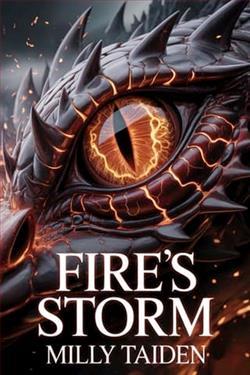Page 27 of Owned By the Orc Warlord
"They'll care about survival. And they'll care about the evidence she helped us gather." I gesture toward the maps and intelligence documents Grimna's patrol recovered. "This isn't speculation anymore—it's confirmed intelligence about enemy capabilities and intentions."
"You're proposing to unite the clans under Stormfang leadership," Khela says. "That's... ambitious."
"I'm proposing to offer alliance to clans that face the same threat we do. United, we might have enough strength to make occupation costly. Divided, we'll be eliminated piecemeal."
The strategy carries enormous risks alongside its potential benefits. Failure to secure allied support would leave theStormfang isolated and vulnerable. Success would commit us to protecting territory and populations far beyond our traditional responsibilities.
But looking at the strategic situation, I realize we've moved beyond the luxury of conservative choices.
"I'll need representatives to carry alliance proposals to each clan," I continue. "Grimna, despite your injuries, your reputation carries weight with the Ironjaw leadership. Khela, the Bloodfang warriors respect your combat record. Vex, your family connections might open doors with the Stormbreak elders."
"And if they refuse?" Karg asks.
"Then we fight alone and hope Zahra's tactical insights prove sufficient against overwhelming odds."
The admission hangs heavy in the chamber's smoky air. We're betting everything on the possibility that unconventional warfare guided by human intelligence might overcome dark elf superiority. It's not a comfortable gamble, but it's the only one we have.
"There's another problem," Grimna says, his voice heavy with reluctance. "The ambush was too precise, too well-informed. Either they have intelligence sources within our clan, or their surveillance capabilities exceed anything we've encountered."
The implication sends cold fingers down my spine. Traitors among the Stormfang would explain how the enemy learned about patrol routes and timing. But the alternative—magical surveillance sophisticated enough to penetrate our security—suggests capabilities that make resistance almost futile.
"Internal investigation," I decide. "Quiet, careful, but thorough. Anyone with access to operational intelligence gets scrutinized."
"Including clan leadership?" Khela's question carries challenge disguised as clarification.
"Including everyone. Trust has to be earned through verification, not assumed through tradition."
The meeting disperses with the weight of impossible decisions pressing down on every participant. Alliance negotiations, internal security investigations, tactical planning for asymmetric warfare—each challenge could consume our entire attention, yet all must be addressed simultaneously.
I make my way to the medical station where Zahra lies unconscious on a bed of healing furs. The clan's best healer—an elderly female named Mora—tends to injuries with the careful precision of someone who's mended warriors for decades.
"How is she?" I ask.
"Alive, which is more than she should be after absorbing uncontrolled chaos magic." Mora's weathered hands glow with soft healing energy as she works. "Broken ribs, severe bruising, probable concussion. She'll recover, but it will take time."
"How much time?"
"Days for basic healing, weeks for full recovery. The magical damage goes deeper than physical trauma—her body needs time to process and eliminate the chaotic energies."
Days we might not have if the dark elves accelerate their timeline further. But pushing her beyond healing would risk permanent damage to someone who's become essential to our survival strategy.
"She asked for you," Mora adds. "Briefly conscious earlier, before the healing sleep took her. Said to tell you the maps were worth it."
The message hits like a physical blow. Even facing death, her first concern was ensuring the intelligence reached the clan. Such dedication to adopted family speaks of bonds that transcend mere political alliance.
"Stay with her," I instruct Mora. "If her condition changes, call me immediately."
The healer nods understanding, her experienced eyes reading the depth of my concern. Whatever relationship exists between Zahra and myself, it's become obvious enough that even casual observers recognize its importance.
I return to my quarters to study the recovered intelligence documents, but concentration proves elusive. Every tactical assessment leads back to the same conclusion—we're outnumbered, outgunned, and operating on shortened timelines against enemies who seem to anticipate our every move.
But we're not helpless. Zahra's insights have already proven their worth in combat, and her example has shown that unconventional approaches can succeed where traditional methods fail. If we can unite the clans, if we can maintain operational security, if we can leverage our territorial advantages effectively...
Too many variables. Too many opportunities for catastrophic failure.
Yet as I watch over the maps detailing enemy positions and supply routes, I find myself thinking not of defeat but of possibility. Zahra chose to stand with us despite every rational argument for running. If a human female can display such courage in the face of impossible odds, perhaps there's hope for the rest of us.
The dark elves have superior numbers and magical capabilities. But they're also arrogant, convinced of their own superiority, dependent on tactics that assume enemy submission.















